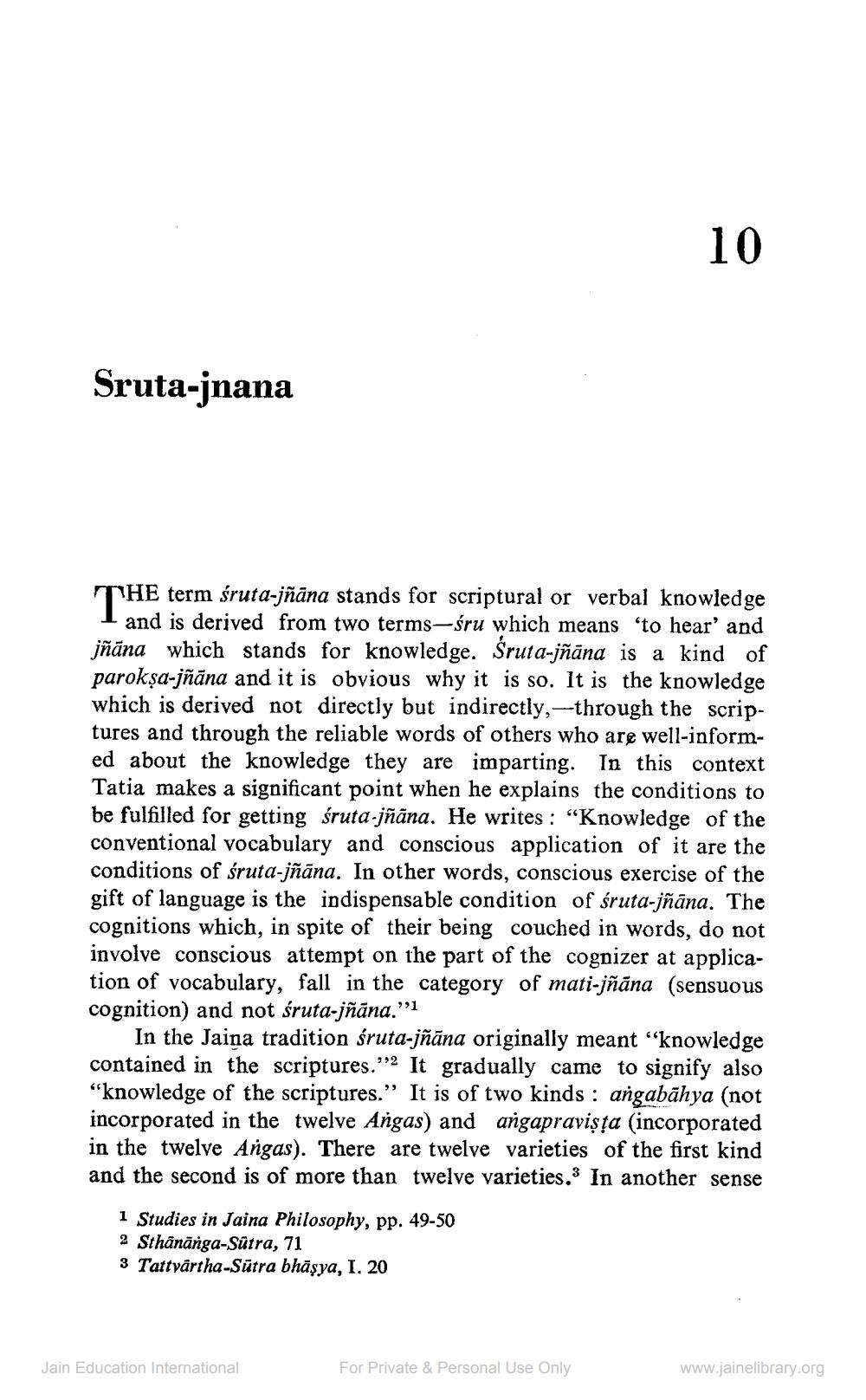________________
Sruta-jnana
THE HE term śruta-jñāna stands for scriptural or verbal knowledge and is derived from two terms-śru which means 'to hear' and jñāna which stands for knowledge. Śruta-jñāna is a kind of parokṣa-jñāna and it is obvious why it is so. It is the knowledge which is derived not directly but indirectly,-through the scriptures and through the reliable words of others who are well-informed about the knowledge they are imparting. In this context Tatia makes a significant point when he explains the conditions to be fulfilled for getting śruta-jñāna. He writes: "Knowledge of the conventional vocabulary and conscious application of it are the conditions of śruta-jñāna. In other words, conscious exercise of the gift of language is the indispensable condition of śruta-jñāna. The cognitions which, in spite of their being couched in words, do not involve conscious attempt on the part of the cognizer at application of vocabulary, fall in the category of mati-jñāna (sensuous cognition) and not śruta-jñāna.”1
In the Jaina tradition śruta-jñāna originally meant "knowledge contained in the scriptures." It gradually came to signify also "knowledge of the scriptures." It is of two kinds : angabahya (not incorporated in the twelve Angas) and angapraviṣṭa (incorporated in the twelve Angas). There are twelve varieties of the first kind and the second is of more than twelve varieties. In another sense
1 Studies in Jaina Philosophy, pp. 49-50
2 Sthānānga-Sutra, 71
3 Tattvärtha-Sutra bhāṣya, I. 20
Jain Education International
10
For Private & Personal Use Only
www.jainelibrary.org




